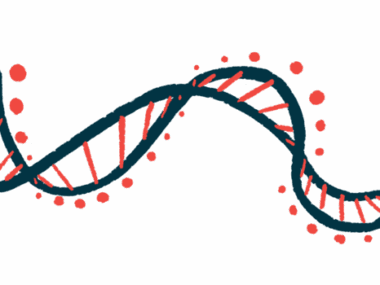Ainos planning Phase 3 study of low-dose interferon-alpha for primary Sjögren’s
Taiwan trial to test effectiveness of experimental therapy Veldona
Written by |

Note: This story was updated Oct. 1, 2024, to clarify that Sjögren’s is a systemic disease, meaning it can affect moisture-producing glands, as well as other parts of the body.
Ainos is planning to launch a Phase 3 clinical trial in Taiwan before the year’s end to evaluate the efficacy of its investigational low-dose formulation of interferon-alpha, known as Veldona, in people with primary Sjögren’s disease.
All regulatory approvals for the new study, planned to take place at the Taipei Medical University-Shuang Ho Hospital, are expected to be completed in November, with the first patient visits anticipated in December, the company said in a press release. The trial is expected to be completed in January 2026.
According to the company, results from three previous Phase 3 trials conducted in the U.S. demonstrated that the treatment improved the production of saliva and eased dryness symptoms in people with Sjögren’s, without causing significant side effects.
“Based on these findings, Ainos is optimistic about Veldona’s potential to improve the quality of life for people living with primary Sjögren’s … and believes it may become a valuable treatment option for the condition,” said Chun-Hsien (Eddy) Tsai, chairman of the board, president, and CEO of Ainos.
This trial will test Veldona’s effectiveness in improving saliva secretion and reducing dryness symptoms among patients with the autoimmune condition.
Interferon-alpha seen to improve saliva production in previous trials
Sjögren’s is a systemic disease marked by the immune system mistakenly launching an inflammatory attack against the glands that produce tears and saliva, leading to its typical hallmark symptoms of eye and mouth dryness. It is classified as primary if it appears as an isolated disease, or secondary when it’s associated with other autoimmune conditions, such as lupus or systemic sclerosis.
Interferon-alpha is a key signaling molecule of the body’s immune response to viral infections. When attacked, most cells in the body produce interferons, which can exert a variety of effects to halt a viral infection. These include destroying infected cells, activating immune cells to aid in the fight against the infection, and preventing viral replication.
Previous research demonstrated that the administration of low doses of oral interferon-alpha can improve the production of saliva in people with Sjögren’s disease.
The new trial is expected to enroll 24 patients with primary Sjögren’s. Each patient will receive three sublingual tablets — tablets that are placed under the tongue to dissolve in the mouth — of low-dose interferon-alpha daily for 24 to 48 weeks (six months to one year). The study’s main goal is to evaluate the efficacy of low-dose interferon-alpha in increasing saliva production and easing dryness symptoms.
Secondary goals include assessing changes in the EULAR Sjögren’s Syndrome Patient Reported Index, a patient-reported measure of dryness symptom severity, and the EULAR Sjögren’s Syndrome Disease Activity Index, a measure of disease activity.
In two previous Phase 3 trials, a total of 497 patients with primary Sjögren’s disease were treated with 150 international units (IU) of human interferon-alpha or a matching placebo, as tablets that dissolve in the mouth. These were given three times daily for 24 weeks, or about six months, across 51 U.S. sites.
Patients treated with low-dose interferon-alpha had a significant increase in their unstimulated whole saliva flow rate compared with those given the placebo. This increase was associated with a reduction in mouth and eye dryness. No significant differences in the frequency or severity of adverse events were observed between the two treatment groups.
A third open-label Phase 3 trial enrolled 288 patients who received low-dose interferon-alpha for about one year following the same dose and administration route, according to the company. This study demonstrated that the treatment significantly eased oral dryness and dryness-related symptoms.
According to the company, the trial will be run by the allergy, immunology, and rheumatology department at Shuang Ho Hospital, following diagnostic criteria set forth by the American College of Rheumatology and the European League Against Rheumatism.






